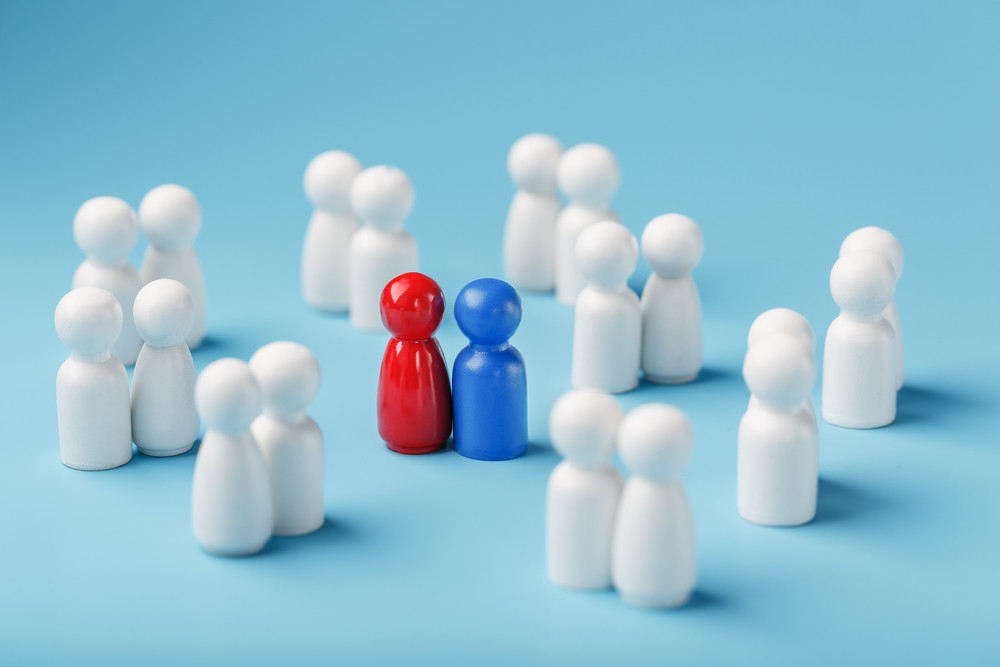Popular Reads
Top Results
Can't find what you're looking for?
View all search resultsPopular Reads
Top Results
Can't find what you're looking for?
View all search resultsCoronavirus and sex: Dos and don'ts during social distancing
Can the coronavirus be transmitted sexually?
Change text size
Gift Premium Articles
to Anyone
Lately, the one topic the entire world is concerned about is the novel coronavirus.
In line with that, as a sex positive neuroscience sex researcher, I am writing this article with a couple of goals: to inform readers how sex relates to the current pandemic, and to prevent the spread of myths and misinformation in an agitated social environment.
Given the common modes of transmission of respiratory viruses, engaging in certain types of sexual activities may risk spreading the virus. However, expecting people to abstain from sex during times of isolation is unrealistic.
In the current situation, since sex is not a priority as a topic of discussion, misinformation can be easily fostered. People could unwillingly exacerbate the spread of the virus if they do not take the necessary precautions.
So, after washing our hands with soap and water for at least 20 seconds, let’s get down to business!
Sex and COVID-19
Can the coronavirus be transmitted sexually? The answer is simple: we do not know. At the moment, there is no reliable research, official communication or scientific report from trusted authorities.
Sexual transmission is not the same as contracting the virus from your sexual partner. You can easily contract the virus from an infected sexual partner by activities like kissing — just not through sexual transmission. That term is defined as transmission through sexual contact and fluids including vaginal, oral and anal sex.
Christian Lindmeier, a spokesperson for WHO — the World Health Organization — told the New York Times that coronaviruses are not typically sexually transmitted. According to the U.S. Centers for Disease Control and Prevention, there are seven types of coronaviruses, all of which typically affect the respiratory tract in humans.
Other infectious disease experts support these observations. But the coronavirus may not be limited to the respiratory tract. There is some evidence that it has been found in the feces of infected patients, although the CDC expects the risk of transmission is low.
The novel coranavirus spreads via droplets that are expelled when infected people exhale, cough or sneeze. Others become infected by inhaling these droplets, or touching them on a surface and then touching their face. Thus, chances of getting the virus through sexual activities with an infected person is almost certain.
Since the virus is present in respiratory secretions, it is easy to assume almost any sexual practice would lead to its transmission due to close contact. This is not the time to have that sexy social gathering.
The executive director of the American adult industry workers’ coalition, Michelle L. LeBlanc, called for a voluntary shutdown of all adult entertainment productions during the pandemic to help prevent the spread of the virus.
Does isolation mean no sex?
Sexual behavior is a realm where variety is highly valued. Although it is practically impossible to ask people not to have sex, perhaps we could help by suggesting simple and small experimenting?
Since you can be infected with the virus and not have symptoms, the only reliable way to know if you or your partner are infected is through testing. If you and your partner have no symptoms and have stayed at home, then sex likely poses no risk.
We can contribute to the control of the COVID-19 pandemic by taking a few precautions. We can also learn to thrive differently in times of sexual need. Here are a few general recommendations to keep in mind that can reduce the risk of COVID-19 transmission.
Safer sex
First and foremost, wash your hands thoroughly for at least 20 seconds with soap and warm water before and after you do anything.
Think of it as the new foreplay in the time of isolation!
If you think you need a face mask, most likely you don’t. Mask use is recommended by WHO only in specific cases. There is evidence that some women in Japan have worn face masks as a way to increase their attractiveness by hiding their faces when not wearing makeup. However, a study of this practice showed that for some, face masks decrease facial attractiveness.
You can further minimize the risk of contagion by using condoms, dental dams or latex gloves. These may not be your cup of tea, but desperate times calls for fun measures.
Non-conventional intimacy
The acts associated with sexual intimacy can have as many variations and alternatives as the imagination can conceive. Instead of kissing and sexual intercourse, try erotic massage, chat rooms, spooning, mutual masturbation, watching or reading erotica, watching your partner pleasure themselves, etc.
Rimming (mouth to anus) should be out of the picture completely.
Engaging in any form of sexual intercourse involves an unnecessary risk, especially when there is still no vaccine or medicine available to treat or prevent the disease.
Everybody knows we like what we cannot get. Refraining or abstaining from your favorite activities to minimize risk will only make them sweeter at the end, once the storm has passed.
Communication
It is essential to stay in tune with your partner, especially if you don’t feel well or simply do not want to engage in any sexual activity. For the singles out there, just like some businesses are taking a toll due to the curfew, the dating pool may be hurt, too.
It is definitely not the best time to go on a Tinder date or expose yourself to unnecessary risks from new partners. If they really like you, they will wait. If you already have started engaging with people, keeping track of whom you have been with, where and when, is a good idea. There is no evidence that kissing through a mask is a safe practice.
Stay informed
The novel coronavirus is no joke, and it has already taken thousands of lives around the world and several lives in Canada. We all can do something to prevent the spread and keep those at risk safe.
Read reliable information. Do not panic. Stay indoors for now. Fear, rumors and misinformation spread quickly. Crucially, we need to trust the recommendations of scientists.
With appropriate efforts from our governments, scientists and our fellow humans, along with the right amount of patience, we will overcome this pandemic and hopefully will be able to go back to our regular lives. Maybe then, we can resume our more so-called “dirty” practices.
---
Gonzalo R. Quintana Zunino, PhD, Behavioural Neuroscience, Concordia University
This article is republished from The Conversation under a Creative Commons license. Read the original article.











